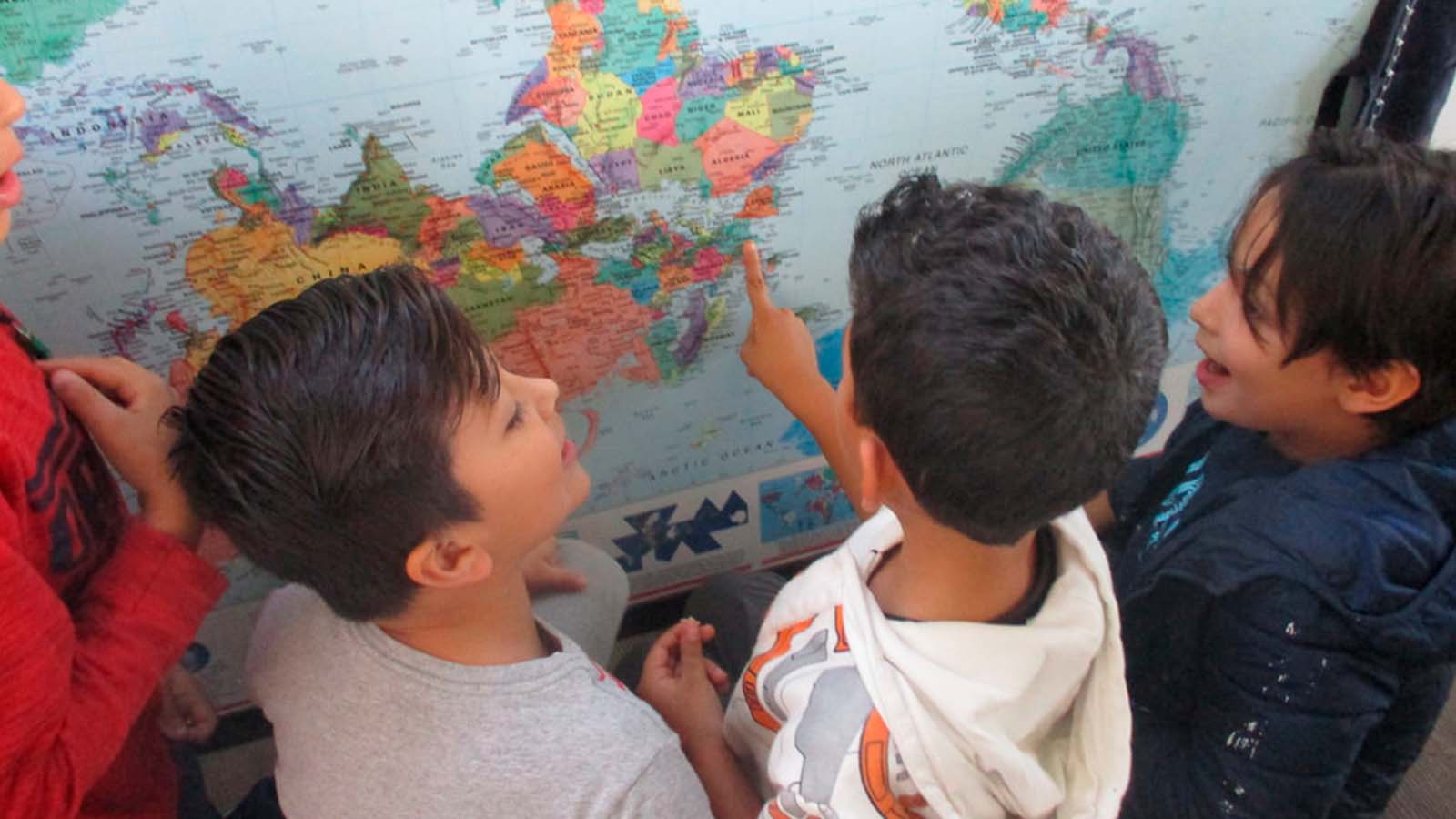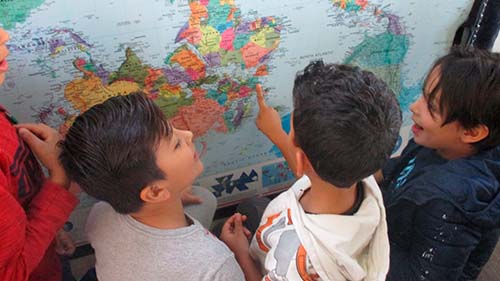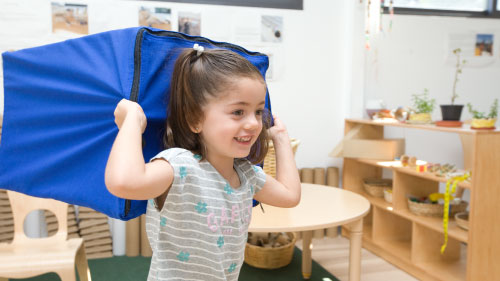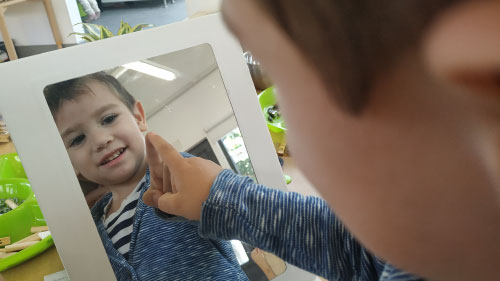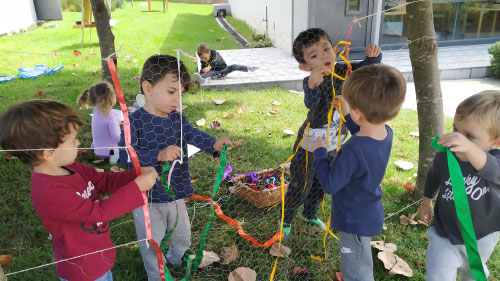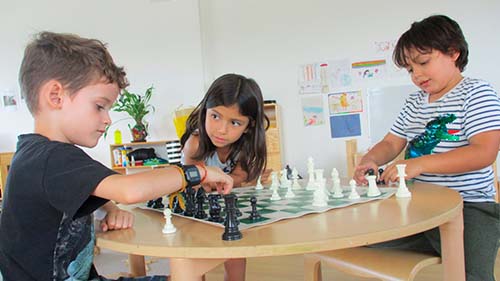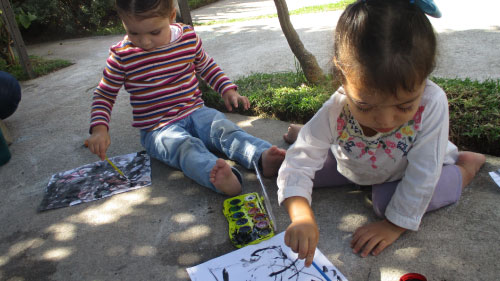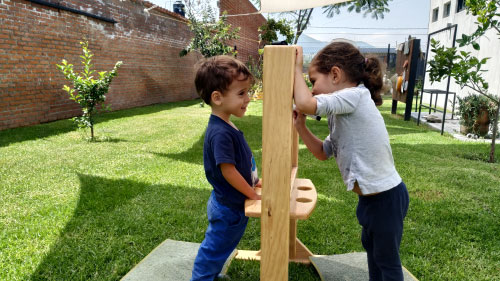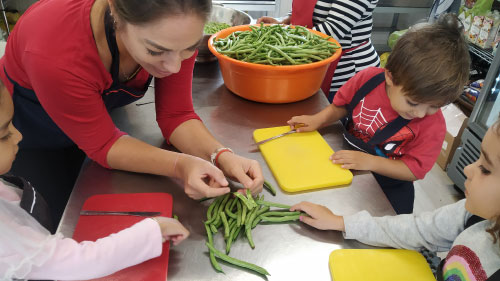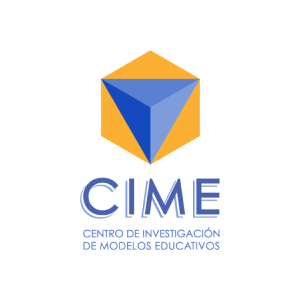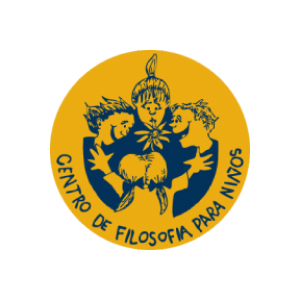Our Approach
Our pedagogy is based on the work of Loris Malaguzzi, an Italian pedagogue and founder of the Reggio Emilia educational philosophy, which is widely considered to be the best educational approach in the world. Malaguzzi was able to bring together the best of various pedagogues such as Maria Montessori, Jean Piaget, Lev Vygotsky, Erik Erikson and John Dewey to develop his own that places the child at the center of the educational experience.
Perhaps the best testaments to the success of this approach can be found in the city of Reggio Emilia, Italy itself, as well as the public education systems of the Scandinavian countries, among others, which are based on the foundations of the Reggio Emilia philosophy and apply across all levels of education. These countries have occupied the top rankings in quality of education for decades.
Our English immersion program offers children the opportunity to learn and develop complete fluency in a second language. Students develop their language abilities by strengthening their mother tongue while learning English. We use a pedagogy based on the most recent studies, which demonstrate the importance of acquiring a foreign language from an early age.
The students learn English through the research projects and all other activities carried out during the day at our campus, where English is the language of instruction.
Based on those same foundations, learning occurs naturally at Hábitat Learning Community based on actual needs and on the children’s own curiosity and interests.
We are aware of the central role of play in childhood, and we acknowledge its importance as the primary tool for childhood learning. Play is the means whereby the child develops motor skills, creativity, and abstract thought. It is through play that children learn strategies for social interaction and to express their way of seeing and understanding the world.
Students at Hábitat Learning Community have a wide range of options to continue learning after normal school hours. They can choose from activities in our extracurricular program such as basketball, yoga, swimming, robotics, music and languages, among others.
The extracurricular classes for kindergarten 2 and 3 start from 2:35 to 3:20 p.m., and for elementary school children, from 3:35 to 4:30 p.m.
Our philosophy
Children are the main protagonists in the educational experience we offer. Our image of the child as a competent citizen, rich in potential, inspires our work as educators.
Our philosophy is guided by the following principles:
